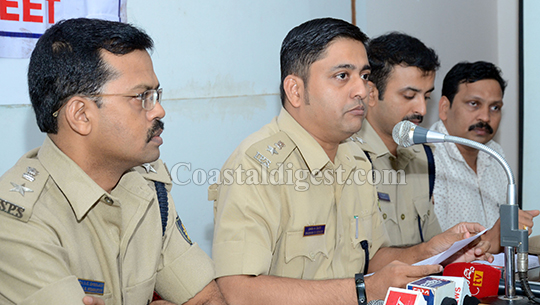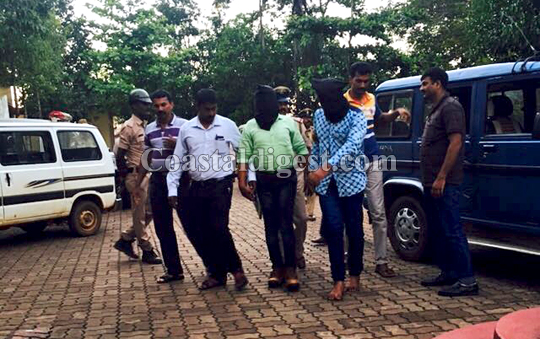Mangaluru, Oct 3: Ten days after a local Congress leader was murdered at Ivarnadu in Sullia taluk, Dakshina Kannada district police have cracked the case and arrested seven accused including plotters and contract killers.
Ismail (52), a resident of Nelyamajalu village and president of Congress Minority Wing of local unit, was brutally hacked to death by a gang of miscreants on September 23 in front of a mosque when he was about to board his car after offering juma (Friday) prayer.
Bhushan Gulabrao Borase, superintendent of police, on Monday told media persons that three teams of police managed to catch the seven accused from three different places in two days.
Abdul Rashid alias Munna (32), a resident of Kulaimane in Bantwal, Abbas alias Ibn Abbas (32), a resident of Krishnapura were arrested on Sunday from Mattu village in Udupi. On the same day Umar Farook AK (32), a contract killer from Kedila village was arrested at Kadaba in Puttur taluk.
Four more accused — Rahman Bellare alias Rahim Bellare, Yakub Bejai, Farooq Bellare and Suhail Nandavara — who plotted the murder, were arrested on Monday based on the information given by the trio.
A Maruti Ritz car bearing number KA 19 MB 3068 which was used to carry out murder was also seized by the police.
Property row
Mr Borase said that a property dispute between two of the seven arrested accused and the management committee of the Zakariah Juma mosque in Bellare led to the murder of Ismail as he had apparently supported the mosque committee members.
He said, Rahman Bellare and Yakub Bejai hatched a plan to eliminate Ismail after the latter used his influence to help the mosque committee against them.
As per plan, the contract killers were waiting in their car outside the mosque. When Ismail stepped out of the mosque and began to walk towards his car, the assailants followed and attacked him with lethal weapons. Even though Ismail had a licensed pistol, he had left it in the car before entering the mosque.
The SP said that in 2014 Rahman Bellare and his brother Siddiq Bellare had attacked Ismail and his wife Waheeda Ismail, who was the president of Bellare Grama Panchaya over the same issue.
Also Read: Congress leader Ismail murdered while returning from Friday prayer






Comments
really shocking to see people around us,. murdering for silly reasons, new punishment should be implemented for murder.. their hand must be chopped,
Add new comment